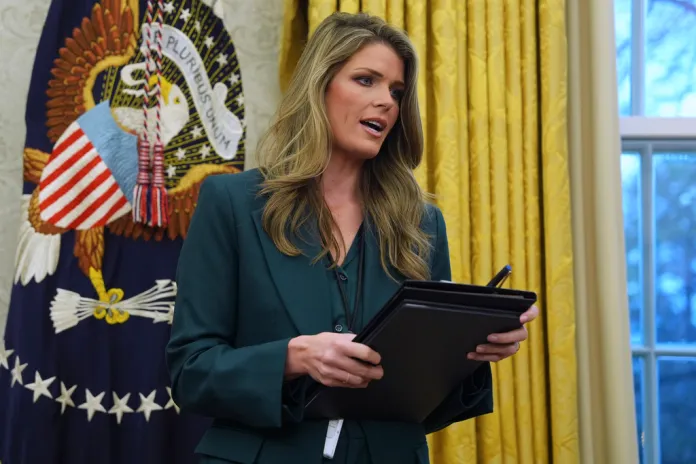A federal judge dismissed the criminal indictments against former FBI Director James Comey and New York Attorney General Letitia James on Monday, ruling that President Donald Trump’s interim U.S. attorney in Virginia had no constitutional authority to bring either case.
Senior U.S. District Judge Cameron McGowan Currie issued back-to-back orders invalidating every action taken by Lindsey Halligan, Trump’s former personal lawyer-turned-federal prosecutor, after finding that her appointment violated federal law and the appointments clause. The cases were consolidated for the purpose of deciding whether Halligan’s authority was lawful.

“The appointment of Ms. Halligan as Interim U.S. Attorney violated 28 U.S.C. § 546 and the Appointments Clause,” Currie wrote in both orders. She held that all actions flowing from Halligan’s “defective appointment,” including securing and signing the indictments against Comey and James, were “unlawful exercises of executive power.”
The rulings mark the most sweeping legal repudiation yet of Trump’s effort to remake the Justice Department with loyal prosecutors. Currie said Attorney General Pam Bondi’s attempts to retroactively ratify Halligan’s actions were also ineffective and are “hereby set aside.”

Both indictments were dismissed without prejudice, meaning the DOJ may attempt to recharge the defendants under a lawfully appointed U.S. attorney. Currie ruled that until the president nominates and the Senate confirms a permanent U.S. attorney, the power to select an interim one now lies with the district court itself.
Speaking at a press conference in Memphis on Monday, Bondi said the DOJ would “take all available legal action, including an immediate appeal,” while declining to speak about Comey’s response video he released to Instagram immediately after his case’s dismissal.
Assistant Attorney General Harmeet Dhillon, who is not handling the case, reacted to the decision by emphasizing “WITHOUT PREJUDICE!” in a post on X, indicating that the DOJ is not giving up on the respective cases.
White House spokeswoman Abigail Johnson told the Washington Examiner that “the facts of the indictments against Comey and James have not changed and this will not be the final word on this matter.”
If the department declined to appeal, the consequences could be far-reaching. Under Currie’s order, the authority to appoint the next interim U.S. attorney shifts to the federal judiciary until the president installs a Senate-confirmed replacement. That introduces the possibility that a court-appointed prosecutor could decline to pursue charges at all, similar to former interim U.S. Attorney Erik Siebert, who reportedly expressed reservations about indicting Comey and James before he resigned under pressure from Trump.
James responded shortly after the ruling, saying, “I remain fearless in the face of these baseless charges as I continue fighting for New Yorkers every single day.” Comey, who famously uploaded a video response to the indictment when it was handed down, declaring his innocence, released a statement expressing his gratitude but predicted “Trump will probably come after me again.”
Currie’s ruling extends a pattern already emerging nationwide. Federal judges have ruled against similar interim appointments made by the Trump administration in at least three other states, blocking Alina Habba in New Jersey, Sigal Chattah in Nevada, and Bill Essayli in California.
JUDGE ORDERS DOJ TO TURN OVER GRAND JURY MATERIALS TO COMEY, CITING POSSIBLE ‘MISSTEPS’
Legal experts caution that, contrary to Comey’s defense team’s public position, the statute of limitations may not bar a future indictment if the DOJ chooses to refile. Under 18 U.S.C. § 3288, prosecutors have six months to obtain a new indictment after a dismissal, even if the original limitations period has expired.
Former federal prosecutor Andrew McCarthy acknowledged this in a recent analysis article for the National Review, noting that the provision allows the government to revive charges so long as the refiled case corrects the original defect.
